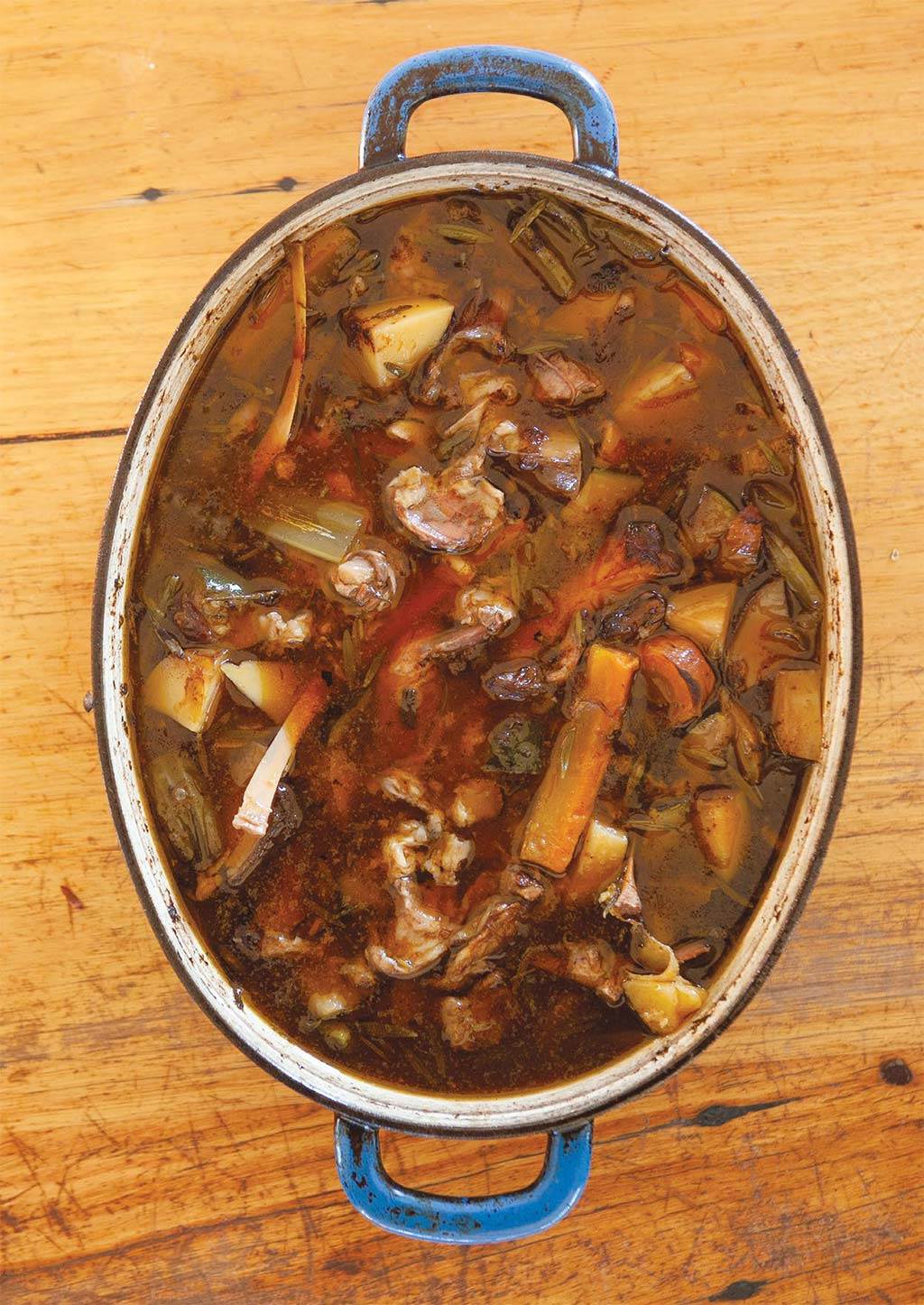There’s nothing better than coming home to the enticing aroma of dinner cooking. Not always about convenience, the key to slow cooking is a lower temperature over a longer period of time which both slows ourselves down and allows us to draw more nutrients from the food we eat.
Cooking slow enables you to be a more ethical meat eater, by making use of the whole animal. Undervalued cuts such as shoulders, necks, shanks or brisket will improve in texture and flavour when subjected to the potent alchemy of gentle heat and time that reduces moisture-loss, tenderises and concentrates flavours.
Every cuisine around the world has devised ways to turn sinewy, boney cuts into delicious tender braises. Think French beef bourguignon, Italian osso bucco, Kashmiri rogan josh or a Mexican pozole. If heated to at least 70 °C the connective tissue and collagen turns into gelatine, and when cooked slowly, the meat won’t dry out.
Slow cooking isn’t limited to braises or stews, vegetable-based meals like soups, mash and dhal are all better when cooked slowly and it can be useful when preserving your home-grown produce such as black garlic, apple sauce and even bone broth.

